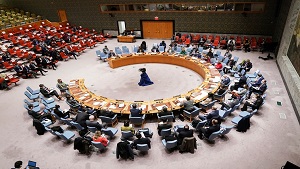The controversial move, carried out under the Advanced Fee Fraud and Other Related Offences Act, has raised questions about transparency and accountability as the owner’s identity remains undisclosed.
The EFCC stated that its actions comply with Nigerian law, which allows such seizures when no one comes forward to claim ownership of properties linked to fraudulent activities.
However, this lack of clarity has drawn criticism from various quarters, including a former presidential candidate, who accused the EFCC of shielding “big thieves.”
Speculations suggest the properties may be tied to Godwin Emefiele, the former governor of Nigeria's Central Bank, who is currently under investigation. The EFCC, however, maintains that its investigations are ongoing and will reveal the owner’s identity in due course.
The lack of transparency in identifying the owner of the seized properties has ignited public scepticism. Critics question how such a massive estate could have been developed without records in land registries or local government approvals.
While the EFCC has defended its decision, stating that the legal framework permits forfeiture without disclosure when ownership is unclear, many see this as a loophole that erodes public trust.
This case is part of a broader wave of forfeitures targeting individuals implicated in financial crimes. Over the past eight years, the EFCC has intensified its crackdown, confiscating assets linked to former government officials, ministers, and military leaders.
Despite the agency’s efforts, critics argue that high-profile cases like this one highlight systemic issues in Nigeria’s anti-corruption drive, including a perceived reluctance to tackle powerful individuals.
The EFCC’s reliance on the Advanced Fee Fraud Act—popularly associated with combating "419" scams, a reference to the section of Nigerian law targeting fraud—has also raised eyebrows.
While this law has been instrumental in prosecuting smaller fraud cases, its application in large-scale corruption investigations like this one underscores the evolving nature of financial crimes in the country.
--ChannelAfrica/Jonathan James Lyamghon--











